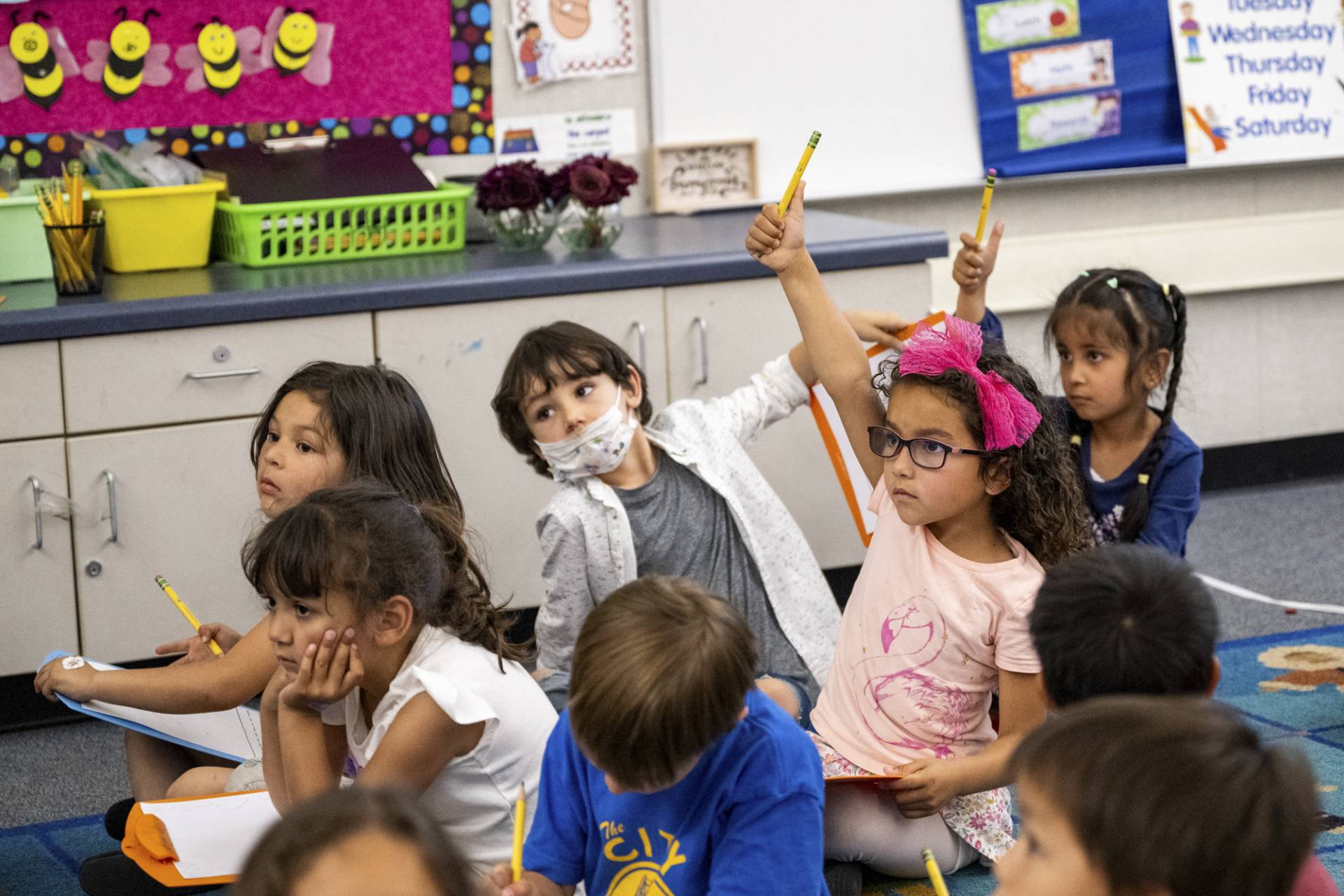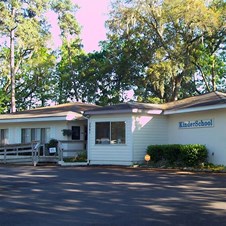Practical learning activities that define Private Grade School Peoria
Wiki Article
Everything About Quality College: Vital Realities and Enhancing Experiences for Youthful Learners
Elementary school plays an essential duty fit young students' futures. It includes essential academic topics and nurtures social abilities with structured communications. Additionally, after-school activities offer possibilities for imagination and teamwork. Adult participation better boosts this foundation, supporting youngsters in their scholastic journeys. As these aspects intertwine, they develop a complete instructional experience. Nonetheless, what details methods can teachers and parents use to maximize this growth?
Understanding the Grade Institution Curriculum
As trainees start their elementary school journey, they come across an educational program created to construct fundamental abilities and knowledge across numerous topics. This curriculum generally encompasses core areas such as maths, language arts, scientific research, and social researches. Each subject is structured to grow critical thinking, creative thinking, and analytic capacities, essential for future scholastic success.Language arts focus on analysis, creating, and interaction abilities, cultivating trainees' capacity to share themselves clearly. Math introduces fundamental concepts, consisting of enhancement, reduction, and later, reproduction and division, preparing for more intricate analytical. Science motivates query and expedition, stiring up interest concerning the environment, while social research studies imparts an understanding of neighborhood and social diversity.
In enhancement to core topics, the curriculum typically consists of arts and physical education, offering a well-rounded educational experience that advertises both physical and intellectual development. Consequently, quality institution functions as a crucial platform for lifelong discovering.

The Framework of Grade College Education And Learning
While grade college education differs by region and organization, it typically adheres to an organized structure that advertises dynamic learning. Typically, grade college encompasses a series of qualities, commonly from kindergarten via 6th or fifth grade, depending upon the instructional system. Each grade degree represents particular developing milestones, with curricula created to construct upon prior understanding.Courses are generally organized into core topics, consisting of maths, language arts, science, and social researches, guaranteeing that trainees receive a well-rounded education. Instruction usually incorporates direct mentor with hands-on activities, fostering engagement and important thinking.

Analysis approaches vary however typically consist of tests, examinations, and jobs to review trainee understanding. In addition, educators typically team up to create interdisciplinary systems, boosting the discovering experience. In general, the structure of elementary school education and learning intends to cultivate foundational abilities, prepare trainees for future scholastic difficulties, and promote a love for learning that prolongs beyond the classroom.
Social Abilities Development in Early Learners
Grade institution education not just concentrates on scholastic skills however likewise plays a considerable duty in the advancement of social skills among early learners. During these formative years, youngsters take part in different activities that urge communication, collaboration, and communication with peers. Group jobs and participating learning setups offer opportunities for children to exercise sharing, discussing, and solving disputes.Additionally, organized playtime cultivates necessary skills like empathy and understanding, as children discover to react and identify to the feelings of others. Via directed social interactions, teachers aid trainees create vital paying attention and conversational skills. As kids navigate relationships and group characteristics, they gain self-confidence in their social capabilities.
The Function of Extracurricular Activities
After-school activities play a substantial function in boosting the educational experience of quality college trainees by providing methods for personal development beyond the class. These activities enable trainees to explore abilities and rate of interests, promoting creative thinking and self-expression. Involvement in sports, music, art, and clubs cultivates teamwork, leadership skills, and a feeling of belonging.Furthermore, participating in such tasks promotes physical health and wellness and wellness, motivating pupils to preserve an energetic way of living. Grade School. Extracurricular programs also act as a platform for trainees to develop relationships and develop social abilities, which are necessary for their general advancement
As students navigate their interests beyond academics, they acquire useful experiences that add to their self-confidence and durability. Eventually, these activities play an important role fit all-round people, preparing them for future obstacles both in and out of the classroom.
Sustaining Learning Via Adult Involvement
Adult participation considerably enhances the instructional trip of quality college students, as it fosters a supportive atmosphere that reinforces learning. Involved parents add to their youngsters's scholastic success by attending college occasions, assisting with homework, and keeping open interaction with teachers. Private Grade School Peoria. This participation not only boosts pupils' inspiration but additionally grows a feeling of belonging and self-confidenceStudy shows that kids whose moms and dads are actively entailed often tend to have greater qualities, far better presence, and improved habits in college. In addition, parental involvement encourages the growth of essential life abilities, such as time administration and duty.
Institutions can facilitate this participation by holding workshops, offering sources, and encouraging normal comments. By creating partnerships in between teachers and parents, elementary school can guarantee a thorough method to pupil growth. Ultimately, adult involvement serves as a foundation for fostering a favorable instructional experience, benefiting both students and the school area as a whole.
Frequently Asked Concerns
What Are the Normal Quality School Hours for Trainees?
Normal elementary school hours for pupils usually vary from 8:00 AM to 3:00 PM, differing by district. Numerous schools integrate a lunch break and recess, ensuring students have time to recharge throughout the day.Exactly How Do Quality Schools Address Diverse Discovering Demands?
Elementary school deal with varied discovering requirements via distinguished guideline, tailored lesson plans, and support services, making sure all pupils obtain appropriate resources. Teachers collaborate with specialists to produce inclusive atmospheres that promote individual growth and interaction.What Is the Role of Technology in Grade School Education And Learning?
Technology in quality school education and learning boosts discovering via interactive devices, individualized discovering experiences, and access to vast resources. It promotes collaboration among teachers and pupils, preparing kids for a technology-driven future while supporting diverse academic needs.Just How Can Moms And Dads Assist With Homework Efficiently?
Parents can aid with research successfully by creating a structured atmosphere, urging independence, giving sources, and supplying support without straight giving solutions. Interaction with educators additionally improves understanding of expectations and advertises academic success.What Are Typical Challenges Encountered by Elementary School Trainees?
Usual obstacles faced by grade school trainees consist of trouble with time administration, comprehending intricate concepts, maintaining focus during lessons, navigating social dynamics, and balancing academic responsibilities with after-school activities, every one of which can affect their general efficiency.As trainees start their grade college journey, they come across an educational program made to build foundational skills and expertise across various topics. Generally, grade institution incorporates a range of grades, frequently from preschool with 5th or 6th quality, depending on the instructional system. Extracurricular activities play a substantial function in boosting the instructional experience of quality school pupils by providing methods for personal growth beyond the classroom. Adult involvement substantially boosts the instructional trip of quality school students, as it fosters a supportive setting that enhances understanding. By creating collaborations in between educators and parents, grade Private Grade School Peoria schools can assure a detailed approach to student development.
Report this wiki page